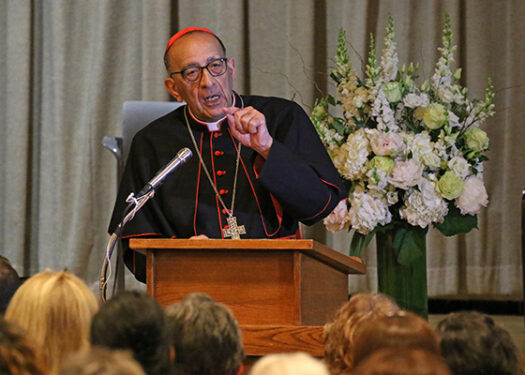
By Inés San Martín
SANTA FE, Argentina (Crux) – During a meeting Sept. 19 with the heads of the Spanish bishops’ conference, Pope Francis expressed concern over a measure to legalize euthanasia soon to be discussed by Spain’s Senate.
“It’s an issue that worries the pope,” said Cardinal Juan Jose Omella of Barcelona after the meeting. “I believe it’s not only about dying or not dying, but also [about] pain and accompaniment. When one receives treatment for pain and feels accompanied by family and professionals, one wants to live.”
Pope Francis is concerned about the protection of life as a whole, the cardinal told journalists in Rome immediately after the meeting.
“The issue of life is not only about refugees, it’s from the child in the mother’s womb until death, it’s a very preoccupying matter,” he said.
“Death is not the end,” Cardinal Omella said. “It’s the door to the other side. If we know how to share this with the person who’s ill, perspectives change. But if we say that this is it, we’re taking hope and spirituality away, things we all carry in our heart. The human person is called to eternity and love.”
The meeting between Pope Francis and the Spanish bishops – including Cardinal Omella, president of the conference; Cardinal Carlos Osoro, Archbishop of Madrid and vice president; and Bishop Luis Arguello, Auxiliary of Valladolid – lasted for over an hour.
The Spanish Senate is gearing up to discuss euthanasia. Earlier this month, the Spanish bishops released a statement calling it a “defeat for human dignity,” and argued that legalizing assisted suicide would affirm a self-centered view of life that sees death as a solution to problems.
In a statement released Sept. 14, the Spanish bishops argued that the advocating for the “right to euthanasia” is a reductionist view of the human person that presents a freedom detached from responsibility.
“On the one hand, the social dimension of the human being is denied, [by] saying ‘My life is mine and only mine and I can take it away,’ and, on the other hand, it’s asked that someone else — that is, organized society — legitimize the decision,” the bishops wrote.
If the bill were to pass, Spain would become the fourth European country to legalize physician-assisted suicide after Belgium, the Netherlands and Luxembourg. Italy, Pope Francis’s own backyard, has not legalized the procedure, but the country’s top court ruled last year that in cases of “intolerable physical and psychological suffering” it shouldn’t be illegal either.
Spain’s proposed legislation would allow adults with a terminal illness or those with chronic disabilities to ask for assisted suicide in the public health system. Today, a person found to have been directly involved in someone’s death through assisted suicide can face homicide charges and up to 10 years in prison.
In their statement, the Spanish prelates also argued that legalizing assisted suicide would also increase rising suicide rates in the country. Instead of euthanasia, the bishops are proposing palliative care.
On Saturday, the Holy Father and the Spaniards also spoke about the coronavirus pandemic, with Francis reportedly asking the prelates to “be very close to the suffering of all the people affected by COVID-19, both in their health and jobs.”
Pope Francis also encouraged them to be close to migrants and to continue announcing Jesus Christ with Joy and hope.

Life is sacred.